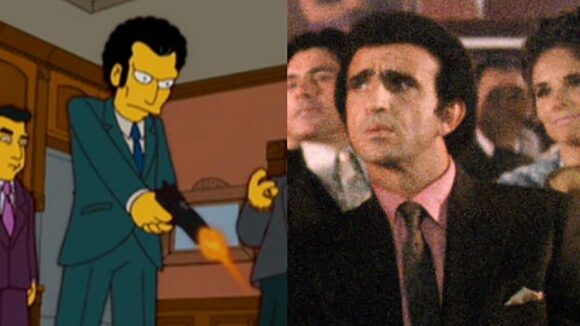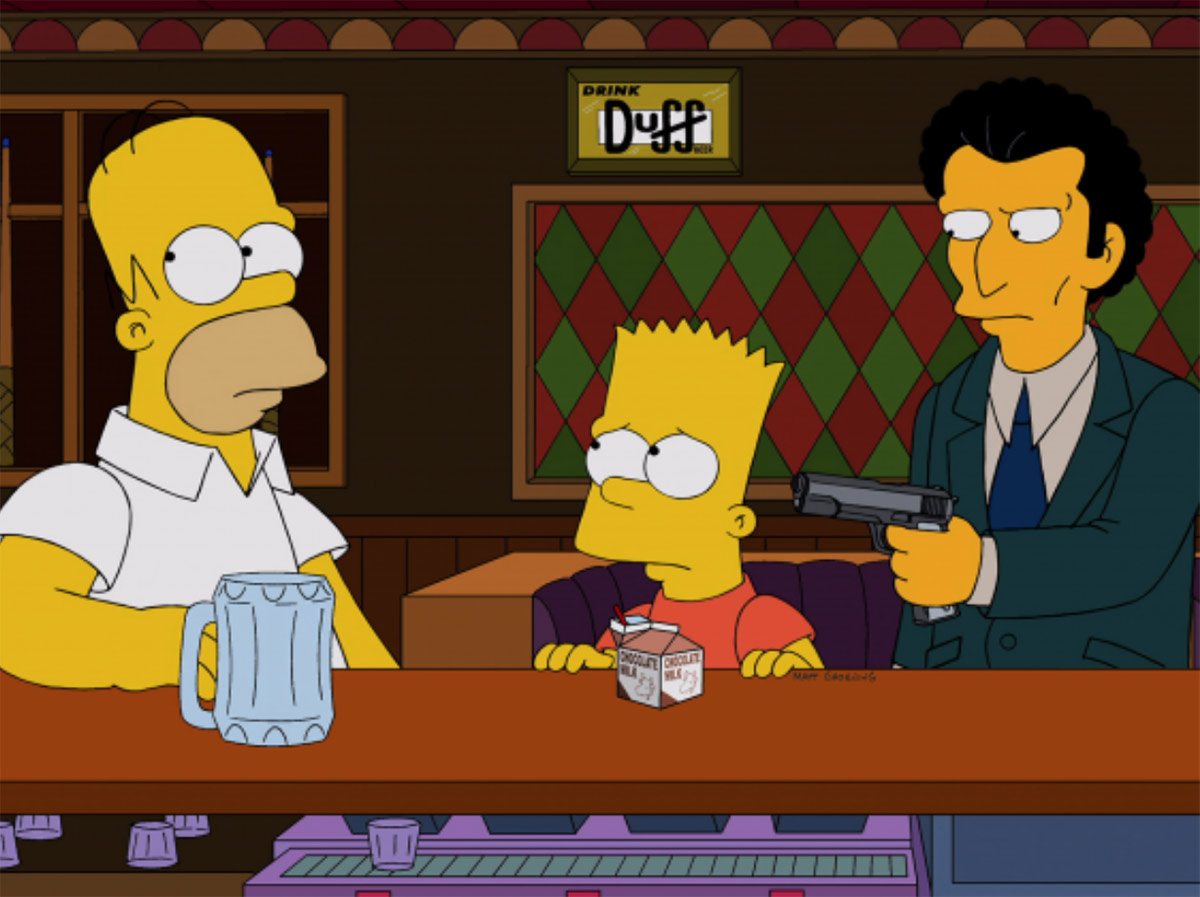

‘The Simpsons’ Are Victorious In $250 Million Lawsuit By ‘Goodfellas’ Actor Frank Sivero
The California Court of Appeals handed a victory last month to Twentieth Century Fox and The Simpsons in a $250 million lawsuit brought by actor Frank Sivero, affirming a lower court’s decision to dispose of the suit before it reached trial.

Sivero, famous for his mobster roles in The Godfather, Part II and Goodfellas, claimed that The Simpsons character, Louie, henchman to mob boss Fat Tony, was based on him, and misappropriated his name and likeness, therefore infringing his right of publicity. Fox countered with the special motion to strike, which allows a court to toss meritless suits early in the process to save time and money.
The appeals court decision has distinct importance for the animation industry, steeped as it is in caricatures of real-world personalities, from 1930s and ’40s movie stars like Katharine Hepburn, Peter Lorre, and Clark Gable in classic Warner Bros. animated shorts, to Tom Cruise, R. Kelly, and Michael Jackson, among others, in Comedy Central’s South Park. Had Sivero prevailed, the implications for animation was clear: even caricatures could infringe the publicity rights of individuals.
What does right of publicity even mean?
The right of publicity protects a person’s identity from being used without permission. Although it developed from common — or judge-made — law, the California code also protects against the “knowing use” of someone’s “name…or likeness” for commercial purposes.
Generally, the law comes into play when someone’s name is used in advertising or marketing materials without permission. But here, Sivero claimed the law also protects against animated caricatures of his likeness. (And in a case currently before the California Court of Appeals, the 101-year-old Golden Age-era Hollywood actress Olivia de Havilland claims even using an actress to portray her in FX’s tv miniseries, Feud, violates her publicity rights, an argument the lower court found convincing.)
How Fox won the case
Fox based its defense on what’s known as an anti-SLAPP special motion to strike — a California law designed to dispose of “meritless lawsuits brought to chill the valid exercise of the constitutional right of petition or free speech,” as the court put it.
To prevail on a special motion to strike, Fox first had to prove that the lawsuit was brought because of Fox’s exercise of its free speech rights. Since The Simpsons lay at the heart of Sivero’s complaint, this hurdle was easily met. Next, Sivero would have to prove that he would likely win at trial. If he did not, then the Court could dismiss the lawsuit entirely.

As the court noted in its opinion, there is a tension in the law, especially where celebrities are involved, between a person’s right of publicity and the First Amendment. The court quoted the California Supreme Court: “Because celebrities take on public meaning, the appropriation of their likenesses may have important uses in uninhibited debate on public issues, particularly debates about culture and values. And because celebrities take on personal meanings to many individuals in the society, the creative appropriation of celebrity images can be an important avenue of individual expression.”
To help resolve this tension, the California Supreme Court developed a test to balance these two interests, weighing whether the alleged infringing use “merely appropriates” the celebrity’s likeness, or adds enough creative elements to “transform the work into the defendant’s own expression.”
In this case, after noting that Louie was “a cartoon character with yellow skin, a large overbite, no chin, and no eyebrows,” the court said that even if Sivero was the basis for Louie, he had been “Simpsonized,” defined as: “To be ‘Simpsonized’ is to be transformed by the creative and artistic expressions distinctive to The Simpsons.” Moreover, the court noted that “when the value of the work comes from…the creativity, skill, and reputation of the artist—it may be presumed that sufficient transformative elements are present to warrant First Amendment protection.”
Thus, the court found transformative use of any likeness to Sivero, and granted Fox’s motion to strike the case.
The Simpsons won the battle, but still cause for concern
However, the decision still concerns those who see in it a threat to the First Amendment. Professor Jennifer Rothman of Loyola Law School, one of the foremost scholars on right of publicity law, for example, notes that the decision puts great weight on the “Simpsonizing” of Sivero’s personality to find transformative use. But as Rothman notes on her website, “One need not turn Martin Luther King Jr., Olivia de Havilland, or Mark Zuckerberg into half-worm, half-human creatures who live in outer space or Springfield, USA, for the First Amendment to protect uses of their names and likenesses in movies and miniseries like Selma, Feud, and The Social Network.”
This is even more of a concern as digital technology combined with creative skill allow for more and more realistic, cgi-based films and television shows. Does the right of publicity bar a realistic, cgi-animated depiction of a celebrity or other public figure?
Nothing in this decision suggests otherwise. The Court of Appeal in the De Havilland case will hopefully provide more clarity. Oral arguments in that case are scheduled for March.

